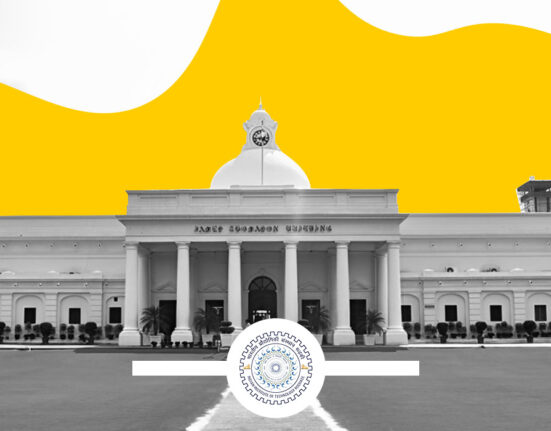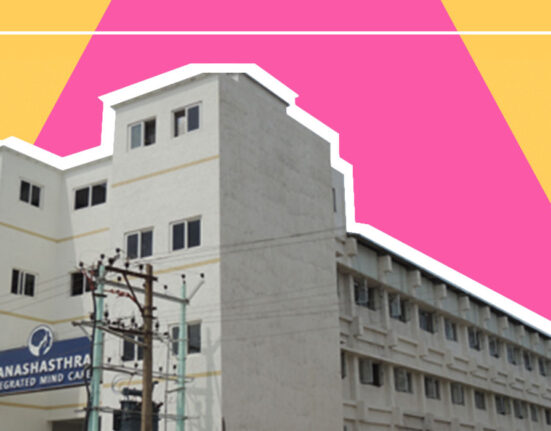To give inmates a variety of necessities and recreational products, the Maharashtra prison administration has introduced 173 new food items, including Pani Puri and ice cream, to the jail canteen catalog. Several things have reportedly been added to the jail catalog, including chaat masala, pickles, coconut water, chess boards, oats, coffee powder, Lonavala chikki, ice cream, organic fruits, peanut butter, Pani Puri, art books, and pieces of color. Along with other commodities, several apparel and grooming products have also been added to the list, such as face washes, hair colors, T-shirts, and Bermuda. Nicotine-brd pills have also been approved to satisfy the craving for tobacco products.
The UP Prison Minister also altered the inmates’ curriculum earlier this month. As part of their education, all inmates in Uttar Pradesh jails will learn personality development practices and recite the Hanuman Chalisa and Sundarkand.
Take of NHRC on revamp of mental health in prison
The National Crime Records Bureau (NCRB) Prison Statistics for 2021 state that 9,180 inmates nationwide are estimated to have a mental illness. Studies have revealed that the actual figure is significantly higher. In light of this, the National Human Rights Commission (NHRC) has issued a comprehensive guideline that centers on preventing suicide and self-harm and enhancing the mental health of the nation’s jail population. This advice comes after the Central Government unveiled the new Model Prisons Act 2023, which is rumored to include a number of measures for inmates’ mental health.
NHRC Advisory on Mental Health of Prisoners
The NHRC advisory suggests and emphasizes, among others, the need for:
- Mental Health Screening: In order to determine the immediate mental health needs that such people may have and to make sure they receive the proper care and attention, it can be extremely important to implement full psychological examinations of inmates upon arrival
- Training for Prison Staff: A safe environment for both inmates and prison workers can be established by training staff members in mental health recognition, CPR administration, and reporting incidents to the designated mental health officer.
- Training for Prisoners: To ensure the welfare of prisoners, it is essential to hold awareness workshops, train a small number of inmates in skills like CPR, and implement the World Health Organization’s “Gatekeeper Model,” which teaches a few prisoners how to detect prisoners who may be at danger of suicide.
- Improving the Visitor System: Prisoners’ emotional support and general mental health can be enhanced by bolstering the visitor system while encouraging family visits.
Mental Health in Maharashtra’s Prisons
Maharashtra has a great chance to prioritize the mental health of its inmates and modernize its jail infrastructure thanks to the NHRC’s advisory. For the third year in a row, Maharashtra leads the nation in the total number of suicide deaths, according to NCRB data for 2021. In terms of suicide deaths that occur in jails across the nation, it comes in second only to Gujarat. Moreover, the State makes a substantial contribution to the overall prison population of the country. With about 40,514 inmates housed in 60 prisons compared to the total authorized strength of 25,393, it has continuously ranked in the top five states in terms of the number of convicts and undertrials, indicating almost 60% overcrowding. Numerous problems in the prison system may be traced back to the extreme strain that overcrowded cells and scarce financial and human resources place on both prisoners and staff.
A number of measures for the well-being of inmates are included in the Mental Health Care Act 2017, which is presently India’s sole comprehensive mental health law. In addition to requiring minimum and emergency mental health Care to be provided in prisons, the Act places a stringent obligation on prison administrators to report to the Mental Health Review Board on a quarterly basis. Nevertheless, these requirements have not yet been correctly implemented and adhered to, as Maharashtra has not yet received the notification of the Rules under this Act.
Revamping Mental Health Care in Maharashtra’s Jails
Quick attention and action are required to address the mental health issue in Maharashtra’s jails. First and foremost, more funding must be allocated to jails’ mental health facilities. This involves qualified personnel and specialized mental health units, as well as security personnel to transport the detainees to medical facilities, etc. Furthermore, ensuring that prison staff members have the proper training, awareness-raising, and assistance will guarantee that they are able to identify and address inmates’ mental health issues. Such actions will advance a more equitable and compassionate criminal justice system in addition to aiding in the rehabilitation and reintegration of those who have been imprisoned.













Leave feedback about this